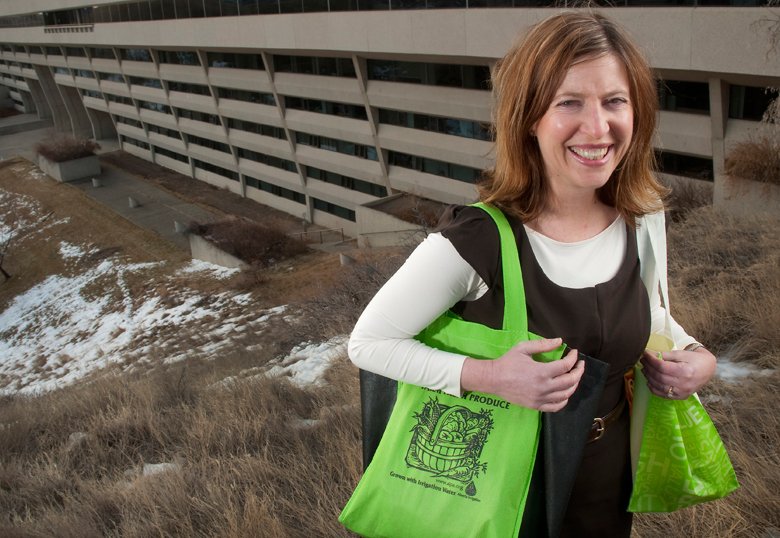Dr. Debra Basil, associate professor of marketing at the University of Lethbridge, is comfortably settling into her newest role: director of the Centre for Socially Responsible Marketing (CSRM).
It's an area of study that is close to her heart and one she has used to engage students in lively discussions. Her classes can elicit strong reactions from students as they debate morals and ethics.

"Recently, I feel that students are becoming more aware. Sometimes they strongly oppose each other's views," she says. "Some students feel that businesses should put profit ahead of ethical issues. Some believe that if it's legal, it's also ethical. We encourage them to consider the long-term implications of their actions because what is good in the short term can be fairly damaging in the long term."
In her consumer behaviour course, students look at how consumers perceive marketing efforts, and try to determine if a company is attempting to mislead consumers. Students are much less supportive of deceptive business practices when they realize they may have been duped themselves.
"We're here to help students think critically about these issues and to examine their own approach. In the long run, we hope they will internalize an ethical approach to business," Basil adds.
As part of her CSRM responsibilities, Basil is currently planning the fourth bi-annual Social Marketing Advances in Research Theory (SMART) conference. It will be held in Dublin, Ireland in April, 2011, in conjunction with the World Social Marketing Conference. This is the world's leading academic social marketing event.
Basil has also been busy as principal investigator in the second year of a Social Sciences and Humanities Research Council (SSHRC) grant, with professors Dr. Sameer Deshpande and Dr. Mary Runté, to study "Cause-related marketing: assessing motivations, experiences and impact for non-profit organizations."
Cause-related marketing represents a partnership between a company and a non-profit organization. The company markets the alliance to gain positive publicity. The non-profit benefits from the company's financial donation and from increased name recognition due to the company's publicity efforts.
Basil, Deshpande and Runté are examining the total impact of these alliances on non-profit organizations – both the good and the bad.
Currently, Basil is working in conjunction with Dr. Gary Noble, University of Wollongong in Australia, on a research project examining the effectiveness of reusable bags in supermarkets. Data has been gathered from supermarkets in Canada, U.S., U.K. and Australia, as well as from consumers in Canada and the U.S. Various municipalities across these countries are introducing legislation aimed at regulating the use of plastic shopping bags.
Basil is hopeful the findings will result in greater consumer buy-in to the concept of reusable bags.
"Through this research we hope to reduce plastic bag use by identifying more effective customer appeal strategies. This should allow supermarkets to satisfy customer expectations while reducing their impact on the environment."
As for how this type of work connects with what students are doing in the program, Basil says, "The vocabulary surrounding social responsibility is becoming more common in business. We have a responsibility to teach this vocabulary so that students can use it effectively when they get into the business world."
To learn more about the Faculty of Management at the University of Lethbridge, follow this link.
